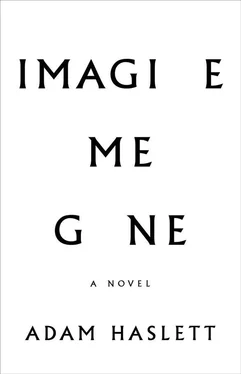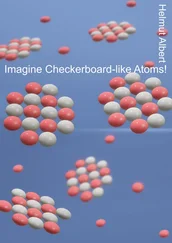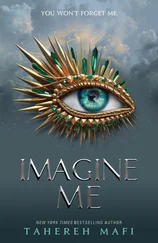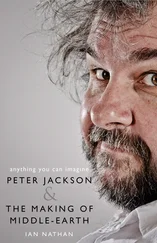“Open the fucking door,” Celia said.
“You will not use that language,” Mom said.
All four of them were there now, and Kelsey, too. Dad didn’t say anything.
The blood was pumping in my ears.
“That’s it, then?” Mom said to Dad. “You’ve got nothing else to offer?”
“Alec,” he said. “Step back, step away from the door.”
“What are you doing, John?”
“I’m going to break it down,” he said.
“No!” I said. “Wait, let me try again.” And I grabbed the pliers, biting the steel with them and yanking the bolt across.
From the clearing in the woods, I can see down through the spruce trees to the river, where a long slab of rock parts the slow-moving waters covered now in morning shade. The rock is mute and still in the encroaching summer heat. It has the inhuman patience of objects. A reminder that mineral time does not care for sentiment, or life. Every human thing, a ruin in waiting. On a planet that is a ruin in waiting. Which says nothing about divinity, one way or the other. I only know that this trial is what has become of my sliver of time.
My great return to Britain was a great failure. There was a recession. Purposeful risk was a hard enough sell to my complacent countrymen. The declining market made them more cautious still. I did what I had told all the entrepreneurs I ever trained not to do: moved my family before I had sufficient commitments. These, at least, are some of the excuses Margaret encourages me to give myself for what happened. That is, when she is not eaten up by fear and rage at the fact that she and the children have been uprooted twice now: first to go over there, to retrieve our furniture from where it had remained in storage, to settle the children in English schools, and then less than three years later to retreat back here to America. Because of me. Because I was fired by my own partners, told they couldn’t afford my debilitation any longer — at the firm I had started. Back here to a different town and different schools, everything new again. Walcott, west of Boston. Because at least here, a man whose business I had helped to start pitied me sufficiently to offer me a job. Which itself couldn’t possibly last, and didn’t. Eighteen months of work, and then the suggestion that I go part-time, and then, a few months ago, the end to that, too.
Against the monster, I’ve always wanted meaning. Not for its own sake, because in the usual course of things, who needs the self-consciousness of it? Let meaning be immanent, noted in passing, if at all. But that won’t do when the monster has its funnel driven into the back of your head and is sucking the light coming through your eyes straight out of you into the mouth of oblivion. So like a cripple I long for what others don’t notice they have: ordinary meaning.
Instead, I have words. The monster doesn’t take words. It may take speech, but not words in the head, which are its minions. The army of the tiny, invisible dead wielding their tiny, spinning scythes, cutting at the flesh of the mind. Unlike ordinary blades, they sharpen with use. They’re keenest in repetition. Self-accusation being nothing if not repetitive. There is nothing deep about this. It is merely endless.
I taught my children how to handle themselves on the water, how to step in and out of a boat, how to row, how to steer an outboard and tie knots, and when I had the chance I showed them how to sail. I taught them how to ride their bicycles, and in the country, in Samoset, I cut paths in the field for them to ride on, and built them a tree fort. And back in Britain, for the two and a half years we lasted there, I showed them castles and Roman walls, and taught them what history I remembered from school. You could say that I fathered them as I was never fathered, but that sounds awfully American and psychological. My father did what his time expected of him without complaint, and I have no bitterness toward him. We weren’t meant to know each other and we didn’t. He didn’t plant the monster in me. It’s older than him, and far savvier. He worked for his family’s shipping business in Belfast, and when he turned thirty he became their agent in Southampton, where he met my mother. He saw his family through the Depression and the war, and ensured that his children were properly educated, and throughout it all he spoke very little, which was no deprivation given that I’d never known him to behave otherwise. It’s easy to make too much of fathers, I want to say.
A few months ago, a fog blinded me, thicker than ever before. I slept in the monster’s arms. I felt its breath on my neck, its scaled stomach rising and falling against my back, its head and face invisible as always. I couldn’t pretend anymore to Margaret that I was working. The children receded into noises grating on my ears. I stopped moving. Weeks went by indistinguishable one from another. I could smell the rot of myself, my armpits, my breath, my groin, as though the living part of death had already commenced, the preliminary decomposing, as the will fades. In Dante and Milton hell is vivid. Sin organizes the dead into struggle. The darkness bristles with life. There is story upon story to tell. But in the fog there is nothing to see. The monster you lie with is your own. The struggle is endlessly private. I thought it was over. That one night the beast at my back would squeeze more tightly and I would cease breathing. What remained of me hoped for it.
But it didn’t happen. Through the window by the bureau I saw the leaves of the Japanese maple and the roof of the house next door and clouds stretched across the sky. Particulars began to return. Dust in the sunlight. The weave of the carpet. The very things which earlier harbingered trouble by threatening to derail my attention and distract me from the through line of a conversation were now, strangely, signs of mental animation: the registering of color, the sharp delineation of objects against their grounds. I got out of bed. Talking seemed nearly impossible but I started eating again with the family. Margaret was exhausted but still she made sure to cook a meal most every night. I noticed again how oddly beautiful my children were, even amid the moroseness I had imposed on the house. Celia’s black hair shone in the buttery light of the sideboard lamp and her enormous eyes coursed with anger at the stifling fact of me and her mother. And Alec — uncannily already my height, always trying to keep up with his sister, measuring his opinions against the force of hers, guileless yet acting at the same time (perhaps his acting is what makes him guileless). I can’t imagine I was ever that young, not so unguardedly. He looks at me out of the corner of his eye, unsure of who or what I am.
And then there is Michael’s empty chair. He came back with us from Britain, but he couldn’t stand it here. Or maybe he couldn’t stand me. Simon, a friend of his from the comprehensive, said he could go back and live with his family to finish his last year of school, and eventually we consented. Of course it made sense. If I hadn’t created such a wreck of things he wouldn’t have been so miserable. The fact is, his being gone makes it easier. It’s harder for me to look at him than at the other two. When he was little he tripped on the stairs in Battersea and hit his head. It wasn’t a serious injury and Margaret didn’t ring me at the office. But around that time, midmorning, I got a terrible headache, bad enough that I left the building to get some air. Walking in the park, trying to shake it off, I sensed something had happened to him. When I rang Margaret I didn’t mention that I already knew what she had to tell me, because I didn’t want to disturb her.
Michael was quiet and very thoughtful as a boy. There were times when he had the air of a mystic about him, as children sometimes do, as if he were staring calmly into the nature of things and had the wisdom to know there were no words for it. But more often his prescience spun him into worry. Was there enough petrol in the car to get us to his grandmother’s house? Did we have enough time to make the train or would it leave without us? What if the water boiled over when his mother wasn’t watching? What if the policemen didn’t know where to find the criminals? His questions had no end and no answers sufficient to mollify him. I didn’t mind. Then he became old enough to realize his questions were childish and instead of asking them aloud, he turned them inward. We stopped having the conversations where I explained simple things to him. School, which made him so unhappy, took over, and whenever I tried to protect him from it, like speaking to a classmate’s parents about how their child was teasing him, I only made it worse. Now he’s taller than I am, thin as a rail, and he talks as fast as can be, not questions but endless invention, his imagination running out ahead of him, to make sure everything stays in motion, that he doesn’t get stuck.
Читать дальше












